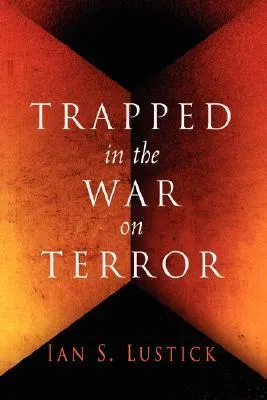Trapped in the War on Terror
By (author): "Ian S. Lustick"

ISBN0812239830
ISBN139780812239836
AsinTrapped in the War on Terror
Original titleTrapped in the War on Terror
The first principle of terrorism is to understand that the weak win by exploiting the strength of the powerful. When 9/11 terrorists with box cutters hijacked American airliners, they transformed America's preeminent transportation system into a devastating weapon of attack. They also set a trap with the promise of revenge and security as the bait. The hijackers' biggest victory was to goad our government into taking the bait by unleashing the War on Terror. The worry, witch-hunt, and waste that have ensued are, according to Ian S. Lustick, destroying American confidence, undermining our economy, warping our political life, and isolating us from our international allies.The media have given constant attention to possible terrorist-initiated catastrophes and to the failures and weaknesses of the government's response. Trapped in the War on Terror, however, questions the very rationale for the War on Terror. By analyzing the virtual absence of evidence of a terrorist threat inside the United States along with the motives and strategic purposes of al-Qaeda, Lustick shows how disconnected the War on Terror is from the real but remote threat terrorism poses. He explains how the generalized War on Terror began as part of the justification for invading Iraq, but then took on a life of its own. A whirlwind of fear, failure, and recrimination, this "war" drags every interest group and politician, he argues, into selfish competition for its spoils.Facing the threat of nuclear incineration during the Cold War, America overcame panic about nonexistent communist sleeper cells poised to destroy the country, a panic fueled by the destructive hysteria of McCarthyism. Through careful analysis of the Soviet threat, the nation managed to sustain a productive national life and achieve victory, despite the terrifying daily possibility of catastrophe. This book is inspired by that success. It points the way forward, not toward victory in the War on Terror but to victory over it. The first and most difficult step toward that victory is to know the enemy. In large measure, as Trapped in the War on Terror shows, that means understanding how al-Qaeda is making us our own worst enemy.